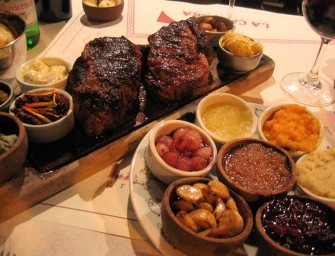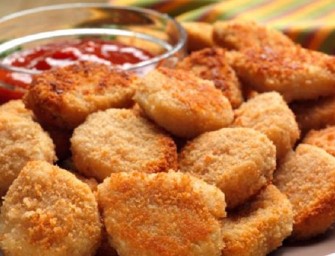Main Name: Dill
Biological Name: Anethum graveolens
Names in Other Languages: Sowa (Hindi), Sathakuppi Sompa (Tamil), Sathakuppa (Malayalam), Sabasiege (Telugu), Sowa (Bengali, Punjabi & Urdu), Surva (Gujarati), Surva, Shepu (Marathi)
Biological Name: Anethum graveolens
Names in Other Languages: Sowa (Hindi), Sathakuppi Sompa (Tamil), Sathakuppa (Malayalam), Sabasiege (Telugu), Sowa (Bengali, Punjabi & Urdu), Surva (Gujarati), Surva, Shepu (Marathi)
How much do you know about dill, apart from the fact that it is an herb used to enhance the aroma and flavor of several dishes? But are you aware of the fact that it was used by Hippocrates to heal burns suffered by soldiers in ancient Rome? To cut short, dill has tremendous healing properties that can accelerate the healing process of wounds. In terms of its culinary uses, it possesses some taste enhancing properties which compliment fish dishes, but it is even better with smoked salmon, cheese, egg dishes, sour cream and yogurt. Does that leave you in a tempting situation with your mouth drooling? Well, read on as there are some unknown facts and benefits of dill, which will give you all the more reasons to add to your delicacies. Dill is a herbaceous annual with aromatic fernlike leaves and pleasantly smelling light brown seeds. Both, the seeds and leaves of the dill are valued as a spice in the kitchen. Read through the following sections to know all the nutritious advantages of including dill in your diet.
History
The dill plant is native to southern Russia, western Africa and the Mediterranean region. For thousands of years, it has been widely celebrated for its culinary and medicinal properties. Mentions of dill have been found both in the Bible and in ancient Egyptian writings, with its healing properties valued in ancient Greek and Roman cultures. Even Hippocrates, the father of medicine, utilized dill in preparing a recipe for cleaning the mouth. Known for its healing properties, ancient soldiers applied burnt dill seeds on their wounds to speed up the healing process. Throughout history, dill was honored for its curative properties. It is said that Emperor Charlemagne used to keep it available on his banquet tables, in order to let his guests enjoy its carminative properties. Today, dill is a prominent ingredient in the cuisines of Scandinavia, Central Europe, North Africa and the Russian Federation.
The dill plant is native to southern Russia, western Africa and the Mediterranean region. For thousands of years, it has been widely celebrated for its culinary and medicinal properties. Mentions of dill have been found both in the Bible and in ancient Egyptian writings, with its healing properties valued in ancient Greek and Roman cultures. Even Hippocrates, the father of medicine, utilized dill in preparing a recipe for cleaning the mouth. Known for its healing properties, ancient soldiers applied burnt dill seeds on their wounds to speed up the healing process. Throughout history, dill was honored for its curative properties. It is said that Emperor Charlemagne used to keep it available on his banquet tables, in order to let his guests enjoy its carminative properties. Today, dill is a prominent ingredient in the cuisines of Scandinavia, Central Europe, North Africa and the Russian Federation.
 http://designsbygollum.blogspot.in/2015/06/dill-herb-with-personality-plus.html
http://designsbygollum.blogspot.in/2015/06/dill-herb-with-personality-plus.html
Health Benefits of Dill
- Dill contains essential oils which are stimulant in nature and activates the secretion of bile and digestive juices. These oils also help to accelerate peristaltic motion of the intestine.
- The essential oils have a peculiar property of acting as a stimulant and sedative, both at the same time. The flavonoids and B complex vitamins in dill trigger the secretion of certain enzymes and hormones of calmative and hypnotic effects; therefore, inducing good sleep.
- Dill is highly helpful in different causes of hiccups, such as allergies, hypersensitivity, hyperactivity and nervous malfunctioning. Its carminative properties promote expulsion of gases and reduce gas formation.
- The essential oils in dill are germicidal or bactericidal in nature, which help in inhibiting microbial infections, thereby curing diarrhea. Due to its effective digestive properties, it helps in cases of indigestion.
- Dill can be very effective in curing dysentery, which is caused by fungal infections. The disinfectant nature of essential oils is capable of reducing the fungal infection successfully.
- The essential oils of the dill stimulate secretion of certain hormones which further help in maintaining proper menstrual cycles.
- Certain components of flavonoids and monoterpenes in the essential oils of dill are anti-congestive and anti-histaminic. They help in clearing over-crowding in the respiratory system due to histamine, allergies or cough.
- Dill seeds and leaves are considered as great mouth fresheners because of their germicidal, antioxidant and disinfectant nature. They help in alleviating microbial infections in the mouth, while the antioxidants reduce the damages caused to the gums and teeth by free radicals.
- Dill contains monoterpenes which activate the secretion of an enzyme called glutathione-S-transferase. This enzyme is highly effective in neutralizing carcinogens, especially Cyano- and Benzo- derivatives and free radicals, hence preventing the risk of cancer.
- Dill is an excellent source of calcium and helps in reducing the bone loss after menopause and in rheumatoid arthritis.
 http://www.thesleuthjournal.com/herb-thought-dill/
http://www.thesleuthjournal.com/herb-thought-dill/Dill Nutrition FactsAmount: 100 g
Weight: 100 g
Weight: 100 g
| Nutrients | Amount |
| Basic Components | |
| Proteins | 3.5 g |
| Water | 85.9 g |
| Ash | 2.5 g |
| Calories | |
| Total Calories | 43 |
| Calories From Carbohydrates | 25 |
| Calories From Fats | 9.4 |
| Calories From Proteins | 8.4 |
| Carbohydrates | |
| Total Carbohydrates | 7 g |
| Dietary Fiber | 2.1 g |
| Fats & Fatty Acids | |
| Total Fat | 1.1 g |
| Saturated Fat | 60 mg |
| Monounsaturated Fat | 802 mg |
| Polyunsaturated Fat | 95 mg |
| Omega-3 Fatty Acids | 13 mg |
| Omega-6 Fatty Acids | 82 mg |
| Vitamins | |
| Vitamin A | 7718 IU |
| Vitamin C | 85 mg |
| Thiamin | 58 mcg |
| Riboflavin | 296 mcg |
| Niacin | 1.6 mg |
| Vitamin B6 | 185 mcg |
| Folate | 150 mcg |
| Pantothenic Acid | 397 mcg |
| Minerals | |
| Calcium | 208 mg |
| Iron | 6.6 mg |
| Magnesium | 55 mg |
| Phosphorus | 66 mg |
| Potassium | 738 mg |
| Sodium | 61 mg |
| Zinc | 910 mcg |
| Copper | 146 mcg |
| Manganese | 1.3 mg |
 http://www.onlineremedies.in/2014/02/dill-dill-benefits-dill-uses-dill-remedies.html
http://www.onlineremedies.in/2014/02/dill-dill-benefits-dill-uses-dill-remedies.html
How many calories in dill (per 100 gm)
Dill contains 43 calories per 100 g of their weight.
Dill contains 43 calories per 100 g of their weight.
How to Buy Dill
- While buying dill, always choose fresh dill weed over the dried form of the herb as it is superior in its delicate fragrant flavor.
- Always keep in mind that the leaves of fresh dill should look feathery and be green in color. Even little wilted dill leaves are acceptable since dill leaves droop very quickly after being picked.
- Even though dried herbs and spices are easily available in supermarkets, try to explore the local spice and ethnic stores in your area. These stores sometimes carry an expensive selection of dried herbs and spices that are of superior quality and freshness compared to those offered in regular markets.
- Always try to choose organically grown dill seeds as there are more chances of these spices not being irradiated.
Dill Storage Tips
- Always store fresh dill in the refrigerator either wrapped in a damp paper towel or with its stems placed in a container of water.
- Fresh dill is very fragile and if stored properly, will remain fresh for about two days only. It can be stored in airtight containers and can be frozen for longer durations.
- Store dried dill seeds in a tightly sealed glass container in a cool, dry and dark place. This way they can be kept fresh for about six months.



